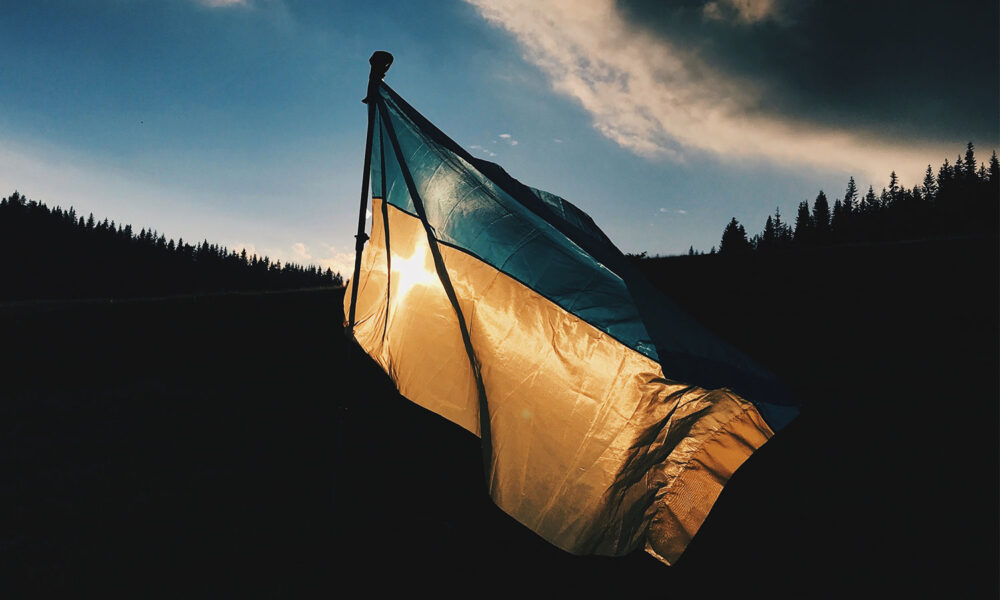We are all Putin’s hostages. He wanted to remind us of that on Sunday night when he put Russia’s nuclear forces on elevated alert. The threat, repeated more than once, is louder now: Putin is willing to risk a nuclear war to secure his interests. But the threat of nuclear use has always been a fundamental part of Putin’s war against Ukraine. Putin is free to wage a senseless and vicious war because nuclear weapons shield him from the risk of confrontation with US and NATO forces.
Putin’s escalating nuclear threats
Countries around the world have condemned Putin’s actions as violations of international law. Russian banks have been disconnected from the international financial system, the most severe of many punitive sanctions aimed at the Russian economy. Military and humanitarian supplies are pouring into Ukraine. But despite these strong demonstrations of support for Ukraine by the international community, only Ukrainian soldiers and civilians defending their country will meet Putin’s forces on the battlefield.
Any contact between Russian and NATO forces would transform the war in Ukraine into a conflict between nuclear superpowers. Such a conflict could easily escalate into nuclear war, a catastrophic humanitarian disaster with immense global consequences. Preventing a nuclear war is the highest responsibility of states that possess nuclear weapons. President Joe Biden met that responsibility when he withdrew US troops from a besieged Ukraine, warning, “that’s a world war when Americans and Russians start shooting at one another. We’re in a very different world than we’ve ever been.”
Despite firm commitments from the United States that it will not risk a confrontation between Russian and NATO forces, Putin’s nuclear threats have continued to escalate. Before his invasion began, the Russian military conducted extensive exercises with its strategic nuclear forces. These annual exercises are typically conducted in the fall; the unusual timing was almost certainly intended as a reminder of Russia’s nuclear capabilities in the midst of diplomatic tensions. When Putin announced that he was launching a ‘military operation’ in Ukraine, he warned that countries who interfered would face “consequences you have never seen.”
Four days into the invasion, it has become clear that there will be no quick victory for Putin. Russian forces have made little progress against fierce Ukrainian opposition. Russia has suffered losses and logistical challenges, and each day the cost of occupation grows steeper. Meanwhile sanctions have devastated the Russian economy almost overnight. The ruble is fast becoming rubble, and anti-war protests have erupted all over Russia. In this context, Putin raised the alert level of Russia’s nuclear forces, his clearest threat yet.
Right now, there is no definitive evidence that Putin plans to use nuclear weapons. Instead, as his invasion continues to inflict heavy costs on his own power and prestige, he is using the threat of nuclear war to undermine Ukrainian and international opposition to his interests. As Putin’s grasp on the conflict continues to weaken, he may rely even more heavily on nuclear brinkmanship to force a breakthrough.
Putin’s nuclear threats are still an unacceptably dangerous escalation, one that increases the risk of miscommunication or miscalculation. They are the actions of a leader who has a callous and frightening disregard for human life. The Polish border is all that separates Russian and NATO forces. Hundreds of US and Russian nuclear weapons are capable of being launched within minutes. Any mistake could lead to catastrophe.
So far, US and NATO leaders have responded carefully and responsibly to Putin’s provocations. The US has condemned Russian escalation but has not changed the alert levels of its own nuclear forces in response; US Strategic Command commented that US nuclear forces “remains at an appropriate posture.” A US national security official said ” We think provocative rhetoric regarding nuclear weapons is dangerous, adds to the risk of miscalculation, should be avoided, and we will not indulge in it.” We must continue to call for restraint and de-escalation from our leaders.
When fear is a weapon, hope is resistance
Putin’s greatest tool is fear. He has weaponized fear against his own people, against Ukraine, and against the world. As we watch the conflict unfold, as we witness thousands of innocent people pay the price for one man’s war, we must not give into fear. When we feel most helpless, hope is a form of resistance.
The five “official” nuclear weapons states, including Russia and the United States, issued a joint statement in January. They affirmed that “nuclear weapons—for as long as they continue to exist—should serve defensive purposes, deter aggression, and prevent war.” Advocates for nuclear weapons often describe them as defensive in nature. Yet Putin is pursuing his imperialist ambitions in Ukraine because he is able to hold the world hostage with Russia’s nuclear arsenal.
There is no way to sugarcoat the danger the world faces now. The risk of nuclear war is not a new danger; the nuclear age is littered with close calls and near misses. If our leaders act wisely – and if we continue to be lucky – we can avoid nuclear war this time, too. Humanity has backed away from the brink before, and we must do so again. This will be little comfort to the families separated, the lives disrupted and destroyed, because of Putin’s war. And it will be little comfort the next time humanity finds itself held hostage to the threat of mass destruction, by this erratic world leader or another.
Putin’s war in Ukraine must be ended. However, if nothing else changes, then there will someday be another war, a next crisis, a new accident. We can’t be lucky forever, and there will always be another autocratic bully who is willing to risk millions of lives to secure his own power. The nuclear weapons that have enabled Putin to wage this war must also be ended.
To achieve victory, Putin needs Ukrainians to resign themselves to defeat. He needs the Russian people to resign themselves to injustice. He needs the world to resign itself to a system that places inhuman power in the hands of a brutal, paranoid dictator.
But the Ukrainians have not resigned themselves to defeat. Every day brings new examples of courage and conviction as Ukrainians risk their lives to defend their homes, their families, and their country. The Russian people have not resigned themselves to injustice. Thousands of Russian protestors have been arrested, but many thousands more are risking their freedom and their future to fill the streets of Russian cities, demanding peace.
So will we resign ourselves to fear and cynicism? Hope is essential to resistance. It is hard to embrace hope in such a dark and dangerous time, but none of us are as helpless as we feel. For those who can, consider donating to credible organizations who are helping people in Ukraine who have been harmed and displaced. For now, we must do what we can to end this humanitarian crisis. Then we must recommit to the hard work of changing the systems that have allowed this crisis to happen.
Humanity can’t survive in a world like this forever. Our only choice is to change it. Even in these dark hours, we can and must start this work to create a brighter future.

